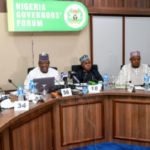The Vice president, Yemi Osinbajo, SAN, has said that there is a need to reimagine Nigeria’s education sector towards ensuring continuity of learning for all children in the country.
Speaking against the backdrop of the prolonged lockdown during the COVID-19 pandemic, which led to the closure of schools across the country in 2020, Osinbajo called for deployment innovations that rethink the current methodologies, including new approaches to delivering education in Nigeria.
He spoke, on Thursday, at the official launch of the Nigeria Learning Passport (NLP) in Abuja, a programme supported by the United Nations Children’s Fund (UNICEF), Microsoft and the Global Partnership for Education (GPE).
NLP which is an online, mobile, and soon–to–be offline platform that would allow continuous access to quality education, is aimed at reaching 3 million learners in 2022 and 12 million learners in the country by 2025.
It is designed for pre-primary, primary and secondary school learning, providing access for children, youths and teachers to access a digitalised curriculum with learning materials in all core subjects for primary one to six, and all junior and secondary school classes.
Osinbajo, who was represented at the event by the Minister of State for Education, Hon Chukwuemeka Nwajiuba, said there has been significant improvement in the sector but access to learning remains a big challenge.
“Over the last decade, Nigeria has made great strides in improving access to education. In the last five years, pre-primary school participation has increased from 45 per cent to 61 per cent, primary enrollment has increased by 5 million. The rate of out of school children has decreased by 10 per cent from 42 per cent to 32 per cent.
ALSO READ FROM NIGERIAN TRIBUNE
- We Have Granted Obiano Bail, But He’s Yet To Meet Conditions, Says EFCC
- Court Strikes Out Umahi’s Motion To Stop Execution Of Judgment Sacking Him As Gov
“These are phenomenal achievements but access to school does not equal learning. Nigeria is facing a learning crisis. Millions of children and young people are not developing even the basic skills they need to break out of poverty due to destruction to schooling and learning by incessant security, COVID-19 as well as more recent attacks.
“To ensure continuity of learning for all children and the resilience of education systems to future shocks, we must change and reimagine the education sector.
“Deploying innovations that rethink the current methodologies, including new approaches to delivering education in ways that defy the digital divide, and ensuring learning continuity in emergencies, has become imperative.
“This launch set the foundation for creating a system of education where digital technology will be used to transform the way that learning is provided and meet the need of every child. The NLP is an effective tool to ensure the continuity of learning through access to curriculum,” he said.
On his part, the UNICEF representative in Nigeria, Mr Peter Hawkins, said the platform can be quickly deployed, customised and scaled-up nationally, including in low connectivity areas.
He noted that the digital platform will address the over 89 per cent of learners who do not have access to computers in the home and over 82 per cent of learners who do not have access to the internet in Nigeria.
“It is also an effective tool to accelerate national reforms to make quality learning opportunities available to more children, anytime, anywhere. Before COVID-19, access to quality education was already profoundly unequal Abo, we know that in Nigeria, 28 million children are in school and not learning at the appropriate levels.
“Sadly, learning is not always equipping our young people with the sits needed to excel in today’s world if we are to realize the ambition of SDG4, then we need to reimagine education, and the deployment of innovations like the Learning Passport will help to bring us there.
“With 65.6 million people aged 10-24, Nigeria has one of the largest young populations in the world representing an extraordinary opportunity for development and growth,” he said.
Also speaking, the Minister of Education, Malam Adamu Adamu, said the platform will be an effective tool for learning in the country.
The minister who was represented by the Acting Permanent Secretary of the Ministry of Education, David Gende, urged the private sector to key in and ensure the sustainability of the project.
A learner can register on the platform using any device with a web browser, or through “NLP.education.gov.ng.”
How Workplace Sexual Harassment Forces Many Out Of Their Dream Jobs
We must rethink education to address challenges ― Osinbajo
WATCH TOP VIDEOS FROM NIGERIAN TRIBUNE TV
- Let’s Talk About SELF-AWARENESS
- Is Your Confidence Mistaken for Pride? Let’s talk about it
- Is Etiquette About Perfection…Or Just Not Being Rude?
- Top Psychologist Reveal 3 Signs You’re Struggling With Imposter Syndrome
- Do You Pick Up Work-Related Calls at Midnight or Never? Let’s Talk About Boundaries







